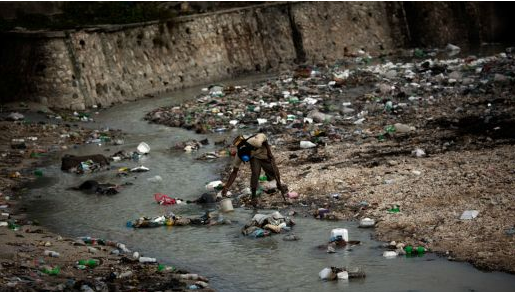Haiti Libre:
According to a new World Bank study “Reducing Inequalities in Water Supply, Sanitation, and Hygiene in the Era of the Sustainable Development Goals” carried out in 18 countries around the world including Haiti, it is imperative to act in the sector of water and sanitation to overcome poverty “countries will have to spend $ 150 billion a year to achieve by 2030, the objective of sustainable development, related to access to sustainable water and sanitation services. This is four times more than they currently invest in water, sanitation and hygiene and this figure, unfeasible for the most may jeopardize efforts to eradicate poverty,” says the World Bank.
The report provides an exhaustive analysis of water and sanitation indicators, highlighting for the first time specific regions within countries where water, sanitation and sanitation services, hygiene are insufficient. It highlights the significant gaps between urban and rural areas, poor areas and others. He stressed that countries must radically change the way they manage resources and provide basic services. To begin with, they need to better target beneficiaries to ensure they reach the populations most in need of these services and to rationalize the use of resources to ensure the sustainability and effectiveness of public services.
It particularly notes the very marked disparities between urban and rural areas. In all 18 countries, 75% of people without access to improved sanitation services live in rural areas and only 20% of these rural populations have access to improved water sources.
For two years, research teams gathered data on access to the water, sanitation and hygiene services and the quality of these services. It emerges for Haiti “[…] access to improved drinking water sources has declined over the past 25 years; access to improved sanitation services remains at 33% and the number of households with access to an improved water source at home has increased from 15% to 7% […]”
To conclude this report, it should be noted that while in many countries services do not reach the poor, it is less because of the quality of public policies than because of the poor implementation…
HL/ HaitiLibre
